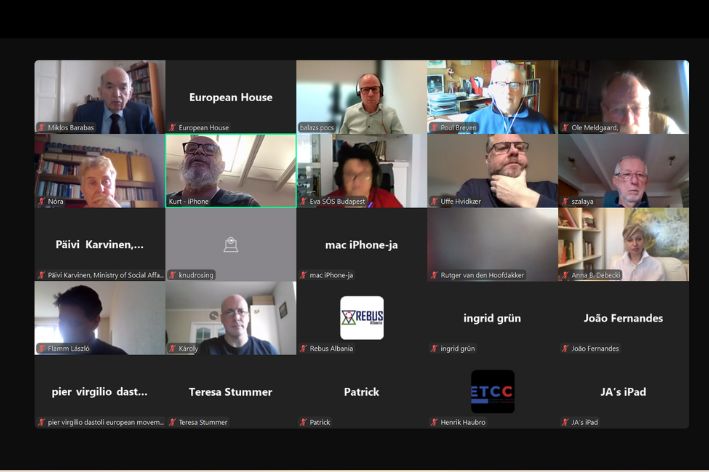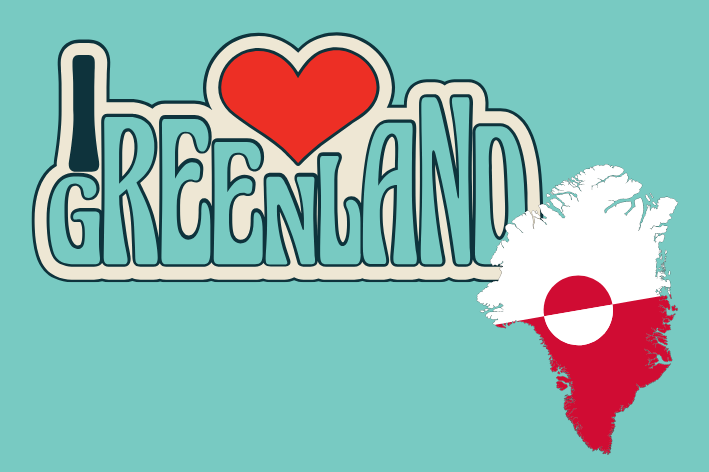A completely independent Greenland could be an option, but only in the long run, and it would take lots of resources – this was one of the main conclusions of the online debate “In Focus: Greenland from a citizen perspective”, organised in the framework of the MRS Civil Network.
Three citizens from Denmark were invited to this first event of a series of monthly online discussions, covering topical issues. Greenland has been all over the news, as President Donald Trump says he believes the US will gain control of this autonomous Danish territory, after showing renewed interest in acquiring Greenland in recent weeks.

Ole Meldgaard – Vice Chair of Baltic Sea NGO Network, member of European civil society networks for organisations working with vulnerable citizens – described the topic of Greenland as a “hot potato”. Getting hold of Greenland is an almost 150-year-old American dream, but it was shocking to hear that President Trump would not rule out the use of force against a partner country of NATO. The typical reaction of citizens was disbelief and disappointment about the United States, although Denmark considers itself a good friend of America. “Many Danes are hurt on a personal level and feel insecure,” Ole Meldgaard said.
Uffe Hvidkaer – founder and Chair of Europe Dialogue (with 630 members from 65 countries), representing Denmark in the Global Dialogue Forum – was not surprised at Donald Trump’s declarations. He added that Danish citizens were not so much interested in Greenland before, but now everybody talks about it. There is also growing pressure on the Danish government, so government members have started negotiations with EU and NATO representatives.
Kurt Nielsen – Head of Health Care in Greenland (2010-2012), Chairman of the European Movement East Jylland, Board member of European Dialogue – admitted that he is personally worried about recent political developments in the US, the Supreme Court, the Republican Party and the Congress being dominated by Donald Trump. “What I really feel sorry and concerned about is the Greenlandic population,” he said. In Greenland, social services and education are for free, and this welfare state could certainly not be maintained if the country became part of the USA.
Ole emphasised that the inhabitants of Greenland don’t want to be Danes or Americans, they want to be Greenlanders, their dream is an independent Greenland. Kurt added that many Greenlanders have strong feelings about the monarchy, and independence can only be achieved in the long run. Building a state takes a lot of resources. Uffe mentioned that Greenland will chair the Arctic Council between May 2025 and 2027.
Anna Debecki, Vice Chair of the Board of Directors at Europe Dialog, said she was surprised that Europeans find President Trump’s approach to the world unusual. “There is diplomacy and there is the way people think,” she explained. “It is really surprising to me that people don’t understand that the way Mr. Trump speaks is very reflective of most of America. The part of the US which is not like that includes the large cities, but most Americans think very much like Mr. Trump. We, Europeans need to understand this.”
Knud, a citizen from Greenland also joined the online debate, stressing that nobody should negotiate about Greenland without involving the Greenlanders themselves. “We as Greenlanders want to participate in all dealings related to Greenland itself,” he said. He recalled that Greenland opted out of the EU (at that time the Common Market) in 1985 for two reasons: because of European fishermen overfishing the oceans around Greenland, and the growing awareness of minerals underground.
“Greenlanders do not want to become a 51st state within the US, we want to be on our own,” he summarised. The EU has already opened a consulate in Greenland’s capital, Nuuk, as have the Americans and the Canadians, he noted.
